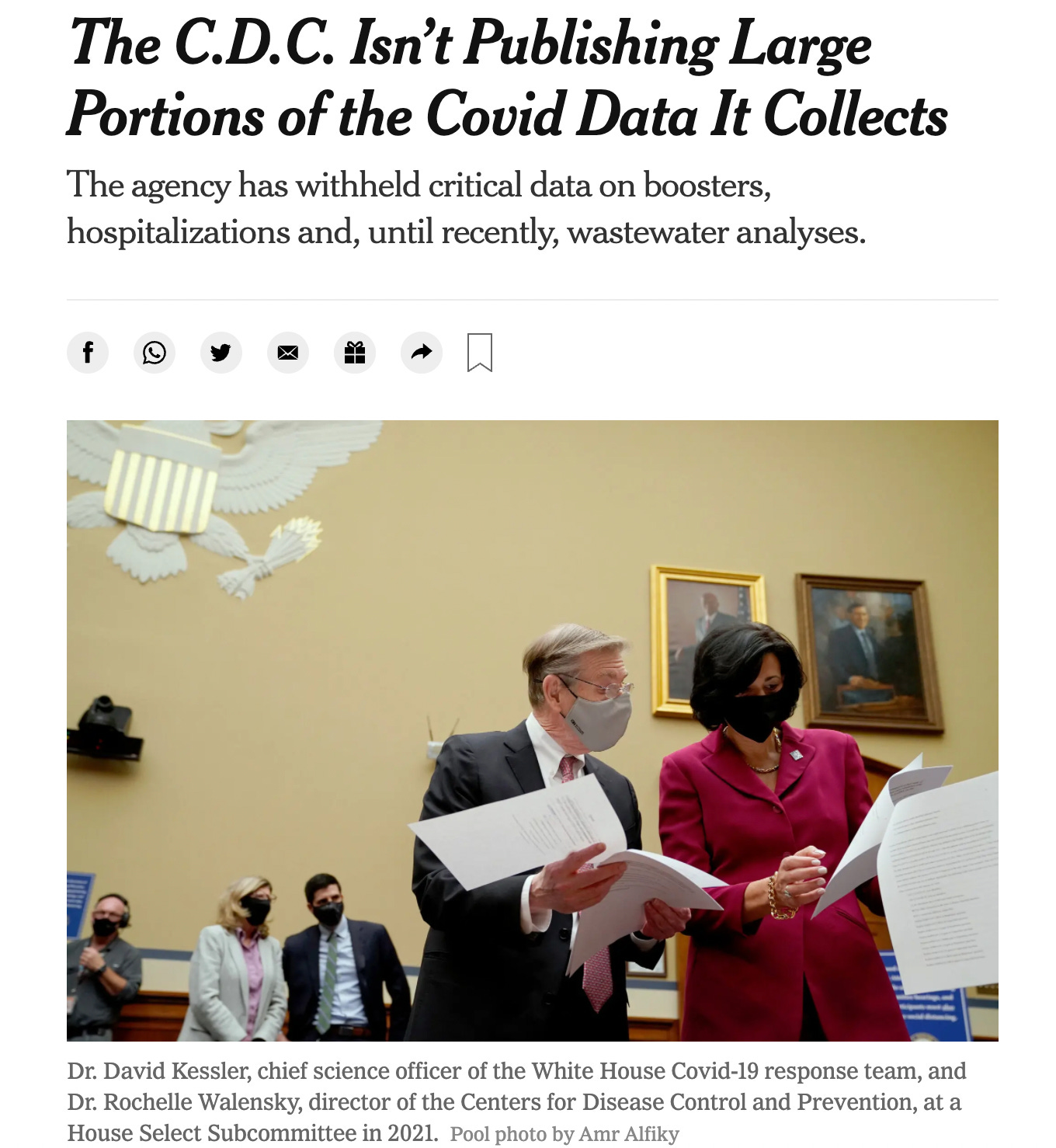CDC Admits: It's Hiding the Data
New York Times uncovers (admits) that the CDC is a political machine more concerned about appearances than actual data.
We’ve been saying for over a year now that the CDC has been less than forthcoming in its export of valuable data. We KNOW they have a LOT more information than they currently reveal around vaccinations, hospitalizations, and mortality. They just don’t want to share it. Why? Well, the New York Times this morning reports:
Kristen Nordlund, a spokeswoman for the C.D.C., said the agency has been slow to release the different streams of data “because basically, at the end of the day, it’s not yet ready for prime time.” She said the agency’s “priority when gathering any data is to ensure that it’s accurate and actionable.”
Another reason is fear that the information might be misinterpreted, Ms. Nordlund said.
“Not ready for prime time” is code for: “this data will make us look bad.”
We saw the same political approach to health data obscurity being adopted this past week in Scotland. Like most of the UK, Scotland has a single-source of health information with a nationalized healthcare system. The results of the past 2 months showed that vaccinated individuals were MORE at risk from Omicron than unvaccinated in many age demographics. To avoid just embarrassing data Scotland just up and admitted they wouldn’t publish the data b/c of “anti-vaxxers”.
“Public Health Scotland will stop publishing data on covid deaths and hospitalisations by vaccination status — over concerns it is misrepresented by anti-vaxx campaigners,” reports the Glasgow Times.
On Friday, we discussed happenings with our good friend HOLD2LLC (the always astute Clayton Cobb). He’s been looking at the infamous unvaxxed risk number put out by government officials (that your 97x more likely to be hospitalized if are are unvaccinated) and demonstrating how fallacious it is.
Bottom line: they’re using the wrong denominators and in many instances vaccination records “lag” because they need to be matched to other systems.
Stay tuned. More on this soon!


